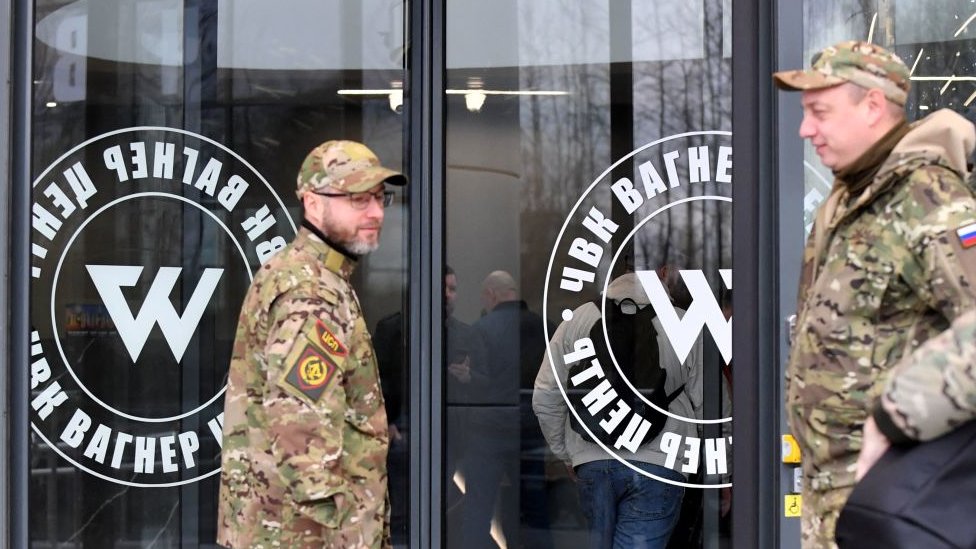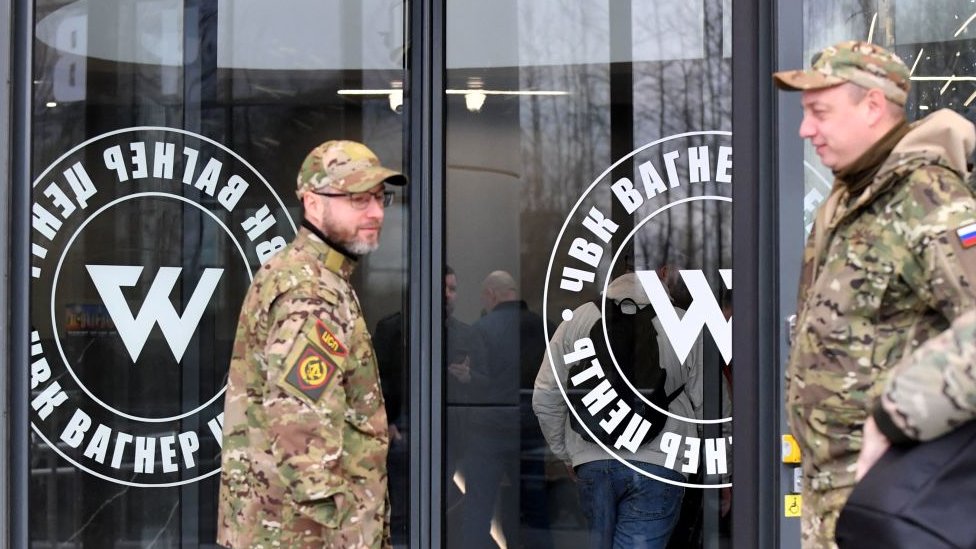Anvar came to Russia in search of work in 2018. Later, he was imprisoned for drug trafficking and sent to serve his sentence in a strict regime colony No. 6 in the Vladimir region, 190 km from Moscow. The BBC is not releasing his real name and nationality for security reasons.
At the end of January, he informed his father that a group of immigrants from Central Asia had been sent to fight with Ukraine without their consent.
“There are many Uzbeks, Tajiks, Kyrgyz in this prison. Now they are planning to send another group and my son is worried that he will be forced too,” Anwar’s father told the BBC.
The BBC has seen Anwar’s court documents and letters confirming that he is indeed serving his sentence in this prison.
And his version of the group that was forced to go to Ukraine in January This is confirmed by Olga Romanova, director of the human rights organization “Russia Behind Bars”. The parents of the prisoners turned to her for help.
“They had no other choice. They were told to sign a contract and sent to the front like a sack of potatoes,” Romanova said.
According to him, at first the parents were ready to go to court so that their children would not end up in Ukraine.
But later they refused to do so, fearing the punishment their sons would face if they remained in prison.
Correctional colony number six known for abuse and frequent beatings to the convicts.
Olga Romanova describes it as a “torture prison”. This is where Alexei Navalny, a prominent opponent of Russia, is being held.
The administration of the colony did not respond to a request from the BBC to respond to allegations that prisoners were forced to sign military contracts.
without much success
Prison recruitment appears to have been very successful, but the situation is changing as the Wagner group suffer heavy losses on the battlefield.
The BBC’s Uzbek service spoke to Farukh (not his real name), an Uzbek citizen imprisoned in the Rostov region of Russia, 200km north of Moscow.
Several of his cellmates joined Wagner. At first they were sent voluntarily, Farukh said, but now he is concerned that the prisoners They are forced to go to war.
“At first I also thought about going, because everyone thought that Russia was stronger, that Russia would win, maybe in a month, three months or a year,” he says.
“But now we see how many people are dying there, and if they run out of soldiers, it’s not good. If they tell me to go and I refuse, they can say that I am against Russia.”
Citizens of Central Asia are recruited in other ways to fight for Russia, not only in prisons.
In total, about 10.5 million immigrants from Uzbekistan, Tajikistan and Kyrgyzstan work in Russia, according to the latest statistics from the Russian Interior Ministry.
So is a huge resource for military recruiters.



The Russian authorities openly register people for military service at the migration center in Moscow.
There are even advertisements in Uzbek, Kyrgyz and Tajik languages, offering citizens of these countries an accelerated receipt of a Russian passport in case of enlisting in the military.
But activists say It’s not always voluntary.
Migrant rights advocate Valentina Chupyk told the BBC that police sometimes stop Central Asian migrants on the street and intimidate them into signing a military contract. They are told that otherwise they will be deported,” Chupik says.
Many immigrant workers do not have proper work permits, do not live where they are registered, or violate other immigration laws.
That’s why they can be an easy target for recruiters.
Aziz (not his real name), who has dual citizenship of Russian and Tajik, told the BBC he was detained during a police raid on a construction site where he works.
They told him they would take him to the police station for an identity check, but instead, ended up in the military.
When he started yelling at the police, demanding why they lied to him, they twisted his arms and pushed him back into the bus.
Finally they released him.
But many immigrants in Russia are afraid of the security forces and dare not object to their call to war.
remember, that you can receive notifications from BBC Mundo. Download the new version of our app and activate them so you don’t miss out on our best content.
Source: La Opinion
Alfred Hart is an accomplished journalist known for his expert analysis and commentary on global affairs. He currently works as a writer at 24 news breaker, where he provides readers with in-depth coverage of the most pressing issues affecting the world today. With a keen insight and a deep understanding of international politics and economics, Alfred’s writing is a must-read for anyone seeking a deeper understanding of the world we live in.
